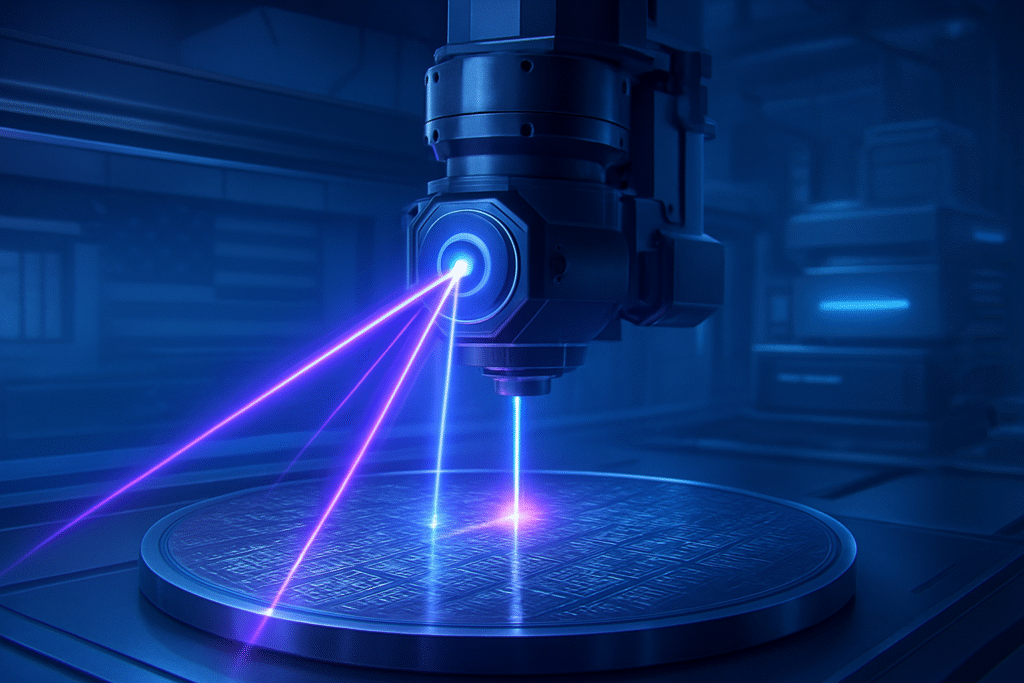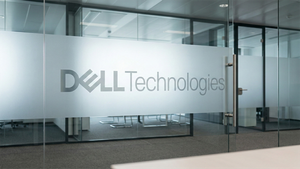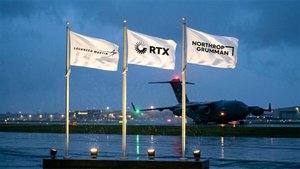
In a significant development poised to reshape the global semiconductor landscape, Substrate, a stealthy startup backed by tech titan Peter Thiel, announced today, October 28, 2025, it has successfully raised over $100 million in a new funding round. This substantial investment is earmarked for an ambitious mission: to establish advanced computer chip manufacturing capabilities within the United States, leveraging a groundbreaking, proprietary lithography technology that promises to drastically cut production costs and reduce reliance on overseas supply chains.
The announcement sends ripples through an industry grappling with geopolitical tensions and a fervent push for domestic chip production. With a valuation now exceeding $1 billion, Substrate aims to challenge the established order of semiconductor giants and bring a critical component of modern technology back to American soil. The funding round saw participation from prominent investors, including Peter Thiel's Founders Fund, General Catalyst, and In-Q-Tel, a government-backed non-profit dedicated to funding technologies vital for U.S. defense and intelligence agencies, underscoring the strategic national importance of Substrate's endeavor.
A New Era of Lithography: Halving Costs with Particle Accelerators
Substrate's core innovation lies in its proprietary lithography technology, which, while not explicitly "laser-based" in the traditional sense, represents a radical departure from current industry standards. Instead of relying solely on the complex and immensely expensive extreme ultraviolet (EUV) lithography machines predominantly supplied by ASML Holding (NASDAQ: ASML), Substrate claims its solution utilizes a proprietary particle accelerator to funnel light through a more compact and efficient machine. This novel approach, according to founder James Proud, has the potential to halve the cost of advanced chip production.
The current semiconductor manufacturing process, particularly at the cutting edge, is dominated by EUV lithography, a technology that employs laser-pulsed tin plasma to etch intricate patterns onto silicon wafers. These machines are monumental in scale, cost hundreds of millions of dollars each, and are incredibly complex to operate, forming a near-monopoly for ASML. Substrate's assertion that its device can achieve results comparable to ASML's most advanced machines, but at a fraction of the cost and complexity, is a bold claim that has garnered both excitement and skepticism within the industry. If successful, this could democratize access to advanced chip manufacturing, allowing for the construction of advanced fabs for "single-digit billions" rather than the tens of billions currently required. The company has aggressively recruited over 50 employees from leading tech companies and national laboratories, signaling a serious commitment to overcoming the immense technical hurdles.
Reshaping the Competitive Landscape: Opportunities and Disruptions
Substrate's emergence, backed by significant capital and a potentially disruptive technology, carries profound implications for the semiconductor industry's competitive dynamics. Chip designers and manufacturers, particularly those reliant on external foundries, could see substantial benefits. Companies like NVIDIA (NASDAQ: NVDA), Advanced Micro Devices (NASDAQ: AMD), and even tech giants developing their own custom silicon like Apple (NASDAQ: AAPL) and Google (NASDAQ: GOOGL), could gain access to more cost-effective and secure domestic manufacturing options. This would alleviate concerns around supply chain vulnerabilities and geopolitical risks associated with manufacturing concentrated in Asia, particularly Taiwan Semiconductor Manufacturing Company (NYSE: TSM).
The competitive implications for existing players are significant. ASML, with its near-monopoly on advanced lithography, faces a potential long-term challenger, though Substrate's technology is still in its early stages. Foundries like TSMC and Samsung (KRX: 005930), which have invested heavily in current-generation EUV technology and massive fabrication plants, might face pressure to adapt or innovate further if Substrate's cost-reduction claims prove viable at scale. For startups and smaller players, a more accessible and affordable advanced manufacturing pathway could lower barriers to entry, fostering a new wave of innovation in chip design and specialized silicon. The U.S. government's strategic interest, evidenced by In-Q-Tel's involvement, suggests a potential for direct government contracts and incentives, further bolstering Substrate's market positioning as a national asset in semiconductor independence.
Broader Significance: A Pillar of National Security and Economic Resilience
Substrate's ambitious initiative transcends mere technological advancement; it is a critical component of the broader strategic imperative to bolster national security and economic resilience. The concentration of advanced semiconductor manufacturing in East Asia has long been identified as a significant vulnerability for the United States, particularly in an era of heightened geopolitical competition. The "CHIPS and Science Act," passed in 2022, committed billions in federal funding to incentivize domestic semiconductor production, and Substrate's privately funded, yet strategically aligned, efforts perfectly complement this national agenda.
The potential impact extends beyond defense and intelligence. A robust domestic chip manufacturing ecosystem would secure supply chains for a vast array of industries, from automotive and telecommunications to consumer electronics and cutting-edge AI hardware. This move aligns with a global trend of nations seeking greater self-sufficiency in critical technologies. While the promise of halving production costs is immense, the challenge of building a complete, high-volume manufacturing ecosystem from scratch, including the intricate supply chain for materials and specialized equipment, remains daunting. Government scientists and industry experts have voiced skepticism about Substrate's ability to achieve its aggressive timeline of mass production by 2028, highlighting the immense capital intensity and decades of accumulated expertise that underpin the current industry leaders. This development, if successful, would be comparable to past milestones where new manufacturing paradigms dramatically shifted industrial capabilities, potentially marking a new chapter in the U.S.'s technological leadership.
The Road Ahead: Challenges and Expert Predictions
The path forward for Substrate is fraught with both immense opportunity and formidable challenges. In the near term, the company will focus on perfecting its proprietary lithography technology and scaling its manufacturing capabilities. The stated goal of achieving mass production of chips by 2028 is incredibly ambitious, requiring rapid innovation and significant capital deployment for building its own network of fabs. Success hinges not only on the technical efficacy of its particle accelerator-based lithography but also on its ability to establish a reliable and cost-effective supply chain for all the ancillary materials and processes required for advanced chip fabrication.
Longer term, if Substrate proves its technology at scale, potential applications are vast. Beyond general-purpose computing, its cost-effective domestic manufacturing could accelerate innovation in specialized AI accelerators, quantum computing components, and advanced sensors crucial for defense and emerging technologies. Experts predict that while Substrate faces an uphill battle against deeply entrenched incumbents and highly complex manufacturing processes, the strategic importance of its mission, coupled with significant backing, gives it a fighting chance. The involvement of In-Q-Tel suggests a potential fast-track for government contracts and partnerships, which could provide the necessary impetus to overcome initial hurdles. However, many analysts remain cautious, emphasizing that the semiconductor industry is littered with ambitious startups that failed to cross the chasm from R&D to high-volume, cost-competitive production. The coming years will be a critical test of Substrate's claims and capabilities.
A Pivotal Moment for US Semiconductor Independence
Substrate's $100 million funding round marks a pivotal moment in the ongoing global race for semiconductor dominance and the U.S.'s determined push for chip independence. The key takeaway is the bold attempt to disrupt the highly concentrated and capital-intensive advanced lithography market with a novel, cost-saving technology. This development is significant not only for its potential technological breakthrough but also for its strategic implications for national security, economic resilience, and the diversification of the global semiconductor supply chain.
In the annals of AI and technology history, this endeavor could be remembered as either a groundbreaking revolution that reshaped manufacturing or a testament to the insurmountable barriers of entry in advanced semiconductors. The coming weeks and months will likely bring more details on Substrate's technical progress, recruitment efforts, and potential partnerships. Industry observers will be closely watching for initial demonstrations of its lithography capabilities and any further announcements regarding its manufacturing roadmap. The success or failure of Substrate will undoubtedly have far-reaching consequences, influencing future investment in domestic chip production and the competitive strategies of established industry titans.
This content is intended for informational purposes only and represents analysis of current AI developments.
TokenRing AI delivers enterprise-grade solutions for multi-agent AI workflow orchestration, AI-powered development tools, and seamless remote collaboration platforms.
For more information, visit https://www.tokenring.ai/.





